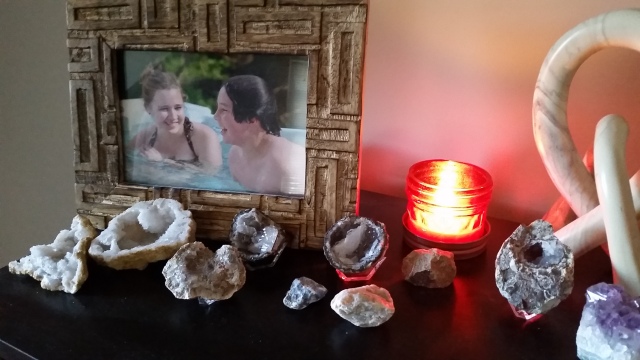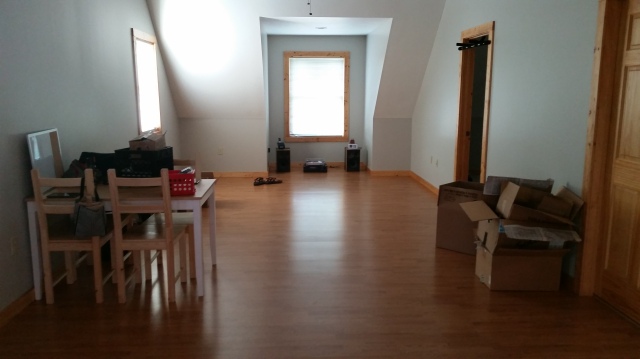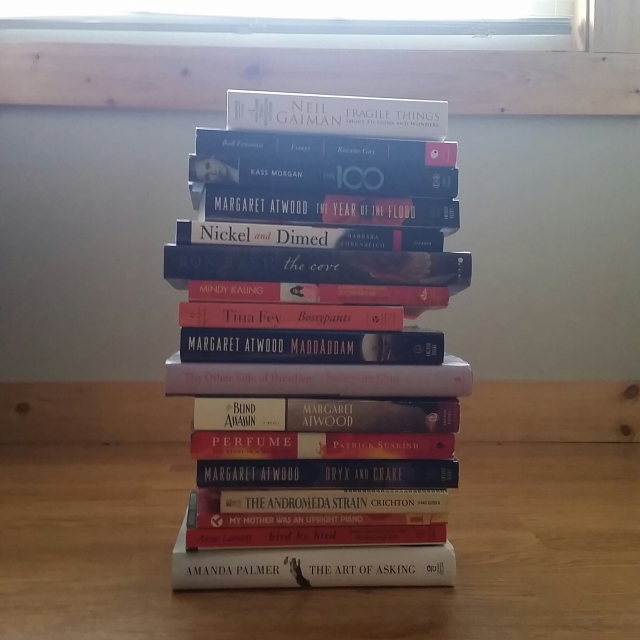According to several of the blogs that I’ve read in preparation for my new lifestyle, I’ve encountered the reason behind all of the clutter that we have in our lives. We own things because we are natural consumers or because something was on sale and we decided to consequently buy 20 of that thing.
Some minimalist authorities seem to believe that we only keep things just in case or that we’re too selfish to give things away, and that’s just shallow. Their theories are as valid as any other theories, including mine, but I refuse to believe that people are just consuming things for the sake of it. Humans are complex and wonderful things, products of a million variables, and taking into account only the same four or five factors that some believe leads to a life of hoarding or consumption doesn’t do them justice.
So, I’d like to add my own.
FEAR
Like, real-life fear. What happens if a button pops off of my interview pants just an hour before I have to be at a big interview? I had a back-up pair. What if so-and-so comes to my house and they don’t see that thing they gave me six years ago and I hurt their feelings? I don’t want to be that person! I kept it. Sometimes in a closet, wrapped up for what was seemingly an endless amount of time and they never asked about it again.
INCOME
It is much easier to throw out your old notebooks when you can always buy new ones. If you aren’t taking in too much income for any reason, it is easier to be tempted to hold onto things—it only makes sense to. Those last couple pages may be what keeps you from having to take down notes on the back of a receipt.
HARDWIRING
People just aren’t built to naturally want to let go of things. The tendency to hoard is built into the brain, just like the love of sugar and fats. Then, we build attachment to the things that we have hoarded. We as a people develop symbols from things we see daily. Maybe a piece of furniture is no longer just a piece of furniture, but a reminder of my father or the house that I used to live in. It’s a symbol now.
It is more than FOMO or even just having something around that we haven’t used yet. It’s more than ‘being a pawn’ or being greedy. For some, it can actually be painful to let things go even when they are going somewhere where they will be used all the time and worn into oblivion. (A valuable use of any object.)
Some objects become love letters from friends and family or from yourself.
Minimalism isn’t easy. It’s down-right hard. If you aren’t prepared to it, you aren’t going to succeed. Part of what you have to do in order to lead a minimalist lifestyle is to fight against your nature.
A tip that I saw recently read: do not keep things out of guilt. As if it’s that easy.

Here’s some of my favorite sentimental clutter.
I am a sentimental hoarder. Since beginning my grand cull, I have thrown out a lot of wonderful things like beautiful artwork that my brother made for me when he was four or five years old. These things bring me joy, but take up a lot of space when I keep dozens of pieces. However, one of the hardest things that I had to let go of was a card that was sent to me from the funeral home after the death of my father. For 10 years, I kept it hidden away, but still thought of it pretty often. For reasons more complex than I can explain, I couldn’t let it go. I didn’t feel better or worse when I got rid of it, but it was something I kept for almost half of my life, taking up space in my sentimental hoard.
So, is there one universal truth about clutter?


